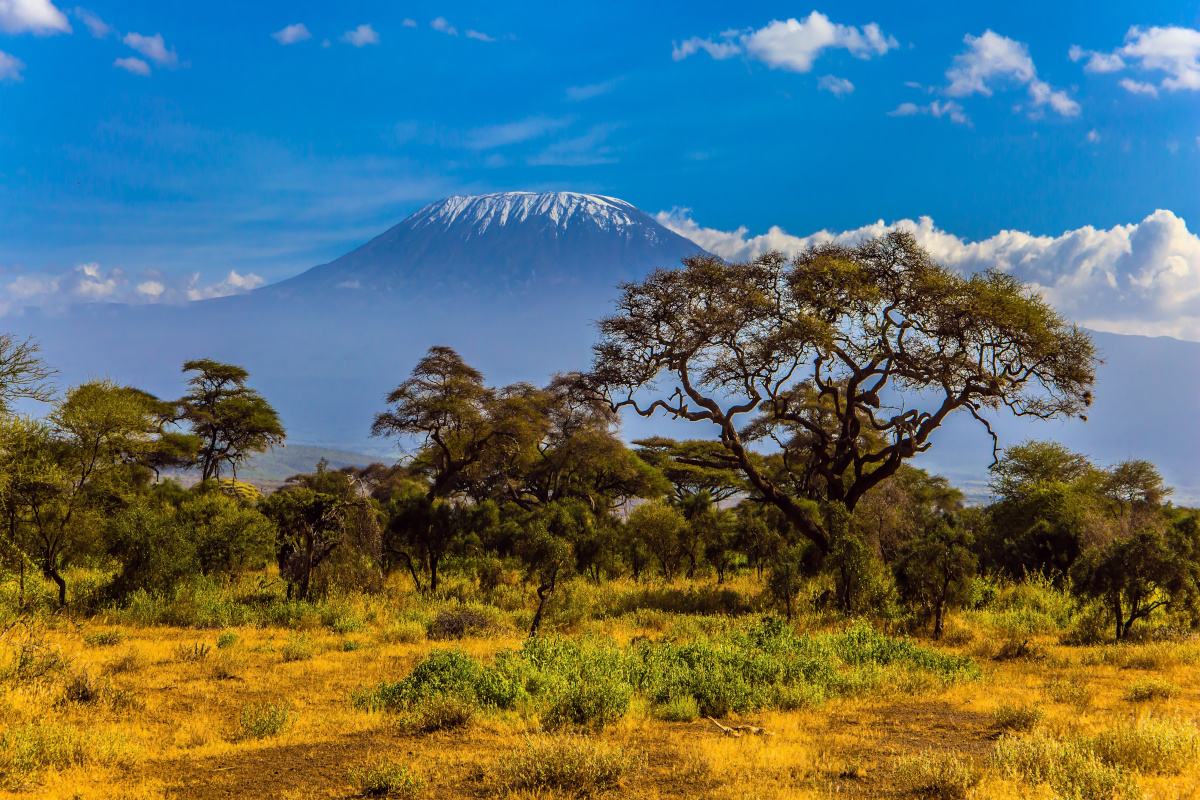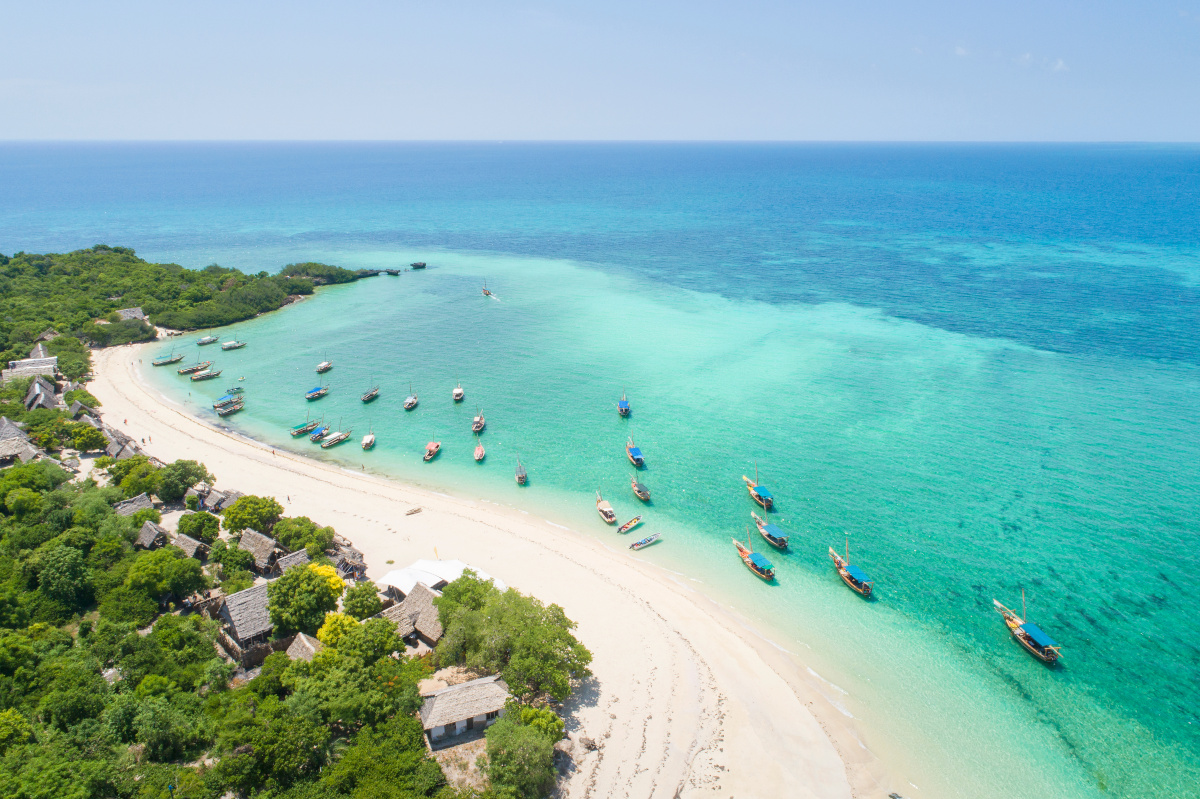
Tanzania Travel Insurance: What You Need to Know Before You Go
Get cover for your Tanzania trip with the best trip insurance from Redpoint
Tanzania is an often underestimated destination that surprises visitors with everything it has to offer. Whether it's the incredible safaris on the Serengeti, the tropical paradises of Zanzibar and Pemba Island, or the Ngorongoro Crater, the world's largest inactive volcano crater — adventure travelers won’t soon run out of things to do in this east African gem.
But despite being a favorite for safari-seekers and those looking for chilled tropical beaches, Tanzania is a developing country, and thus still contains some elevated risks for travelers. If you're booking a trip, you will definitely want a travel insurance policy that has essential benefits, like emergency medical coverage and emergency evacuation coverage.
Read on for everything you need to know about visiting Tanzania — and the travel insurance you might need while you're there.

Health & Safety in Tanzania
Overall, Tanzania is considered a safe destination for tourists. Violent crime is relatively rare, though isolated incidents of robbery and carjacking have been reported. Travelers should avoid walking alone at night and use registered taxis or ride-hailing services instead of public transport. Be on the lookout for petty crime, like bag snatching and tourist scams, in busy cities and popular areas.
For travel tips and the most up-to-date information on Tanzanian health and safety, you should always consult the U.S. Department of State’s travel advisory for Tanzania, as well as the country-specific guidance from the Centers for Disease Control and Prevention (CDC).
U.S. travelers should also register for the Smart Traveler Enrollment Program (STEP) before departure, which will enable the State Department to reach out in case of emergencies and to send timely updates on health, weather, safety, and security in your destination.
Before traveling to Tanzania, U.S. travelers should ensure they are up to date on routine vaccinations, including measles, mumps, and rubella (MMR), tetanus, hepatitis A and B, rabies, and typhoid. If you are arriving from a high-risk country, proof of yellow fever vaccination is required for entry.
Malaria is common in Tanzania, so consider taking antimalarial medication and always use insect repellent and mosquito nets. Waterborne illnesses, such as cholera and traveler’s diarrhea, can also be concerns, making it essential to drink bottled or purified water and avoid raw or undercooked food.
Tanzania is famous for its national parks and wildlife encounters, but visitors should always follow safety guidelines and listen to advisories from local authorities to prevent dangerous animal encounters.
In forested and rural areas, insects, such as tsetse flies and mosquitoes, can pose health risks, so wearing long clothing and using insect repellent is advised. Encounters with aggressive monkeys or baboons can happen in certain areas, even ones that are well-populated by humans, and feeding wildlife should always be avoided.
Tanzania experiences occasional natural disasters, including seasonal flooding and rare earthquakes. The rainy seasons, from March to May and November to December, can cause localized flooding and travel disruptions. Coastal areas, including Zanzibar, may also experience strong storms or cyclones. Travelers should monitor weather updates, especially if visiting during these periods, and follow local advisories. Do not travel when conditions are dangerous.
Road conditions in Tanzania can vary from well maintained in major cities to hazardous and unpaved in rural areas. Traffic accidents are common due to reckless driving and poorly maintained vehicles. It’s almost always safer to hire a private driver or use reputable transport services, rather than drive yourself.
If you take motorcycle taxis, known as boda bodas, always wear a helmet and be aware of the heightened risk. In general, travelers should exercise caution when using public transportation and opt for domestic flights when covering long distances.
Insurance Benefits & Coverage for a Trip to Tanzania
The components of any good travel insurance policy are the same. Before you purchase travel insurance, you’ll want to make sure your plan includes each type of coverage benefit listed below. That way you’ll be covered, no matter what unforeseen circumstances might come your way in Tanzania.
Trip cancellation and trip interruption insurance:
Travel medical insurance:
Emergency medical evacuation insurance:
Baggage and personal belongings insurance:
Trip delay insurance:
Redpoint has a selection of travel insurance plans that offer crucial coverage for every type of trip to Tanzania, no matter your activity level or travel needs.
For adventure travelers looking to climb Kilimanjaro, visit the Serengeti, or discover Zanzibar’s amazing kitesurfing, Ripcord is an extensive travel plan with high coverage limits and enhanced coverage.
Redpoint’s other policies provide comprehensive and tailored trip protection for a wide range of situations too, from travel delays to trip interruptions to unexpected medical fees. If you’re sticking to exploring the amazing culture of Dar es Salaam or Arusha, Cavalry is particularly suited for urban travel and luxury experiences, while Harbor offers robust coverage for the budget-minded leisure traveler.
You can buy travel insurance for a single trip to Tanzania, or purchase an annual policy for multiple trips. Check out our plan options and get a quote today.
FAQs for Tanzania Travel Insurance

1. Is travel insurance mandatory for Tanzania?
2. How much is travel insurance for Tanzania?
3. What should your travel insurance cover for a trip to Tanzania?
4. Are there any COVID-19 restrictions for travelers to Tanzania?
5. What happens if a tourist gets sick in Tanzania?
If you need to call emergency services in Tanzania, dial 112. If you are struggling to find a suitable facility, Redpoint can also be reached for round-the-clock assistance at +1-415-481-0610.
6. Are the hospitals good in Tanzania?
In case of a medical emergency or other serious situations, many expats and travelers choose medical evacuation to Kenya or South Africa.
7. What documentation is needed to visit Tanzania?
8. Is Tanzania safe to visit?
Travelers should stay away from areas deemed unsafe by the U.S. State Department, such as the Mtwara Region in southern Tanzania. In addition, be on the lookout for scams and overcharging of tourists in popular tourism areas. If you're going on safari, only do so with a professional guide and follow all safety precautions when it comes to wildlife encounters.
9. Is Tanzania safe for female travelers?
10. How do I contact the U.S. Embassy in Tanzania?
686 Old Bagamoyo Road, Msasani
P.O. Box 9123
Dar es Salaam
Tel:+255-22-229-4000
Redpoint Travel Protection Is Here to Help
Redpoint is known for comprehensive and easy-to-understand policies to suit any type of trip, from laid-back island hopping to volcano exploring, so you can travel with confidence. Explore our three travel insurance plans — Ripcord, Cavalry, and Harbor — and get a quote for your next trip today.

